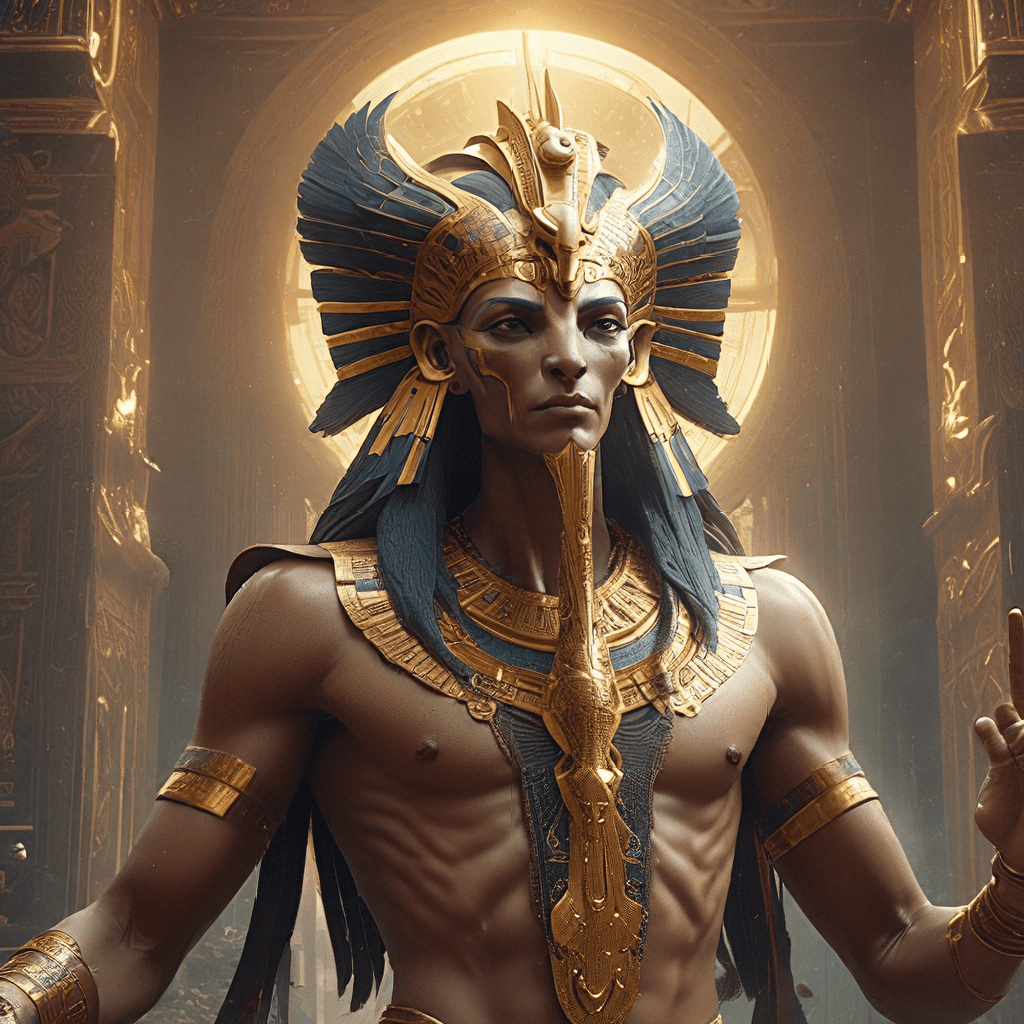Thoth: The God of the Afterlife – An Outline
Thoth, the esteemed deity of ancient Egyptian mythology, holds a prominent position within the pantheon and is renowned for his multifaceted roles. Not only is he the embodiment of wisdom, knowledge, and magic, but he also serves as the scribe of the gods, the inventor of writing and the calendar, and ultimately the judge of souls in the afterlife.
Thoth’s Origins and Iconography
Thoth’s origins are deeply entwined with the concept of wisdom and knowledge. As a primordial deity, he is believed to have emerged from the primordial waters of Nun, the embodiment of chaos, representing the initial spark of intelligence and order in the universe. He is often depicted as a human figure with the head of an ibis, a bird associated with intellect and learning. However, he also appears in other forms, such as a baboon, a creature known for its cleverness and curiosity. The ibis-headed figure is particularly significant, symbolizing Thoth’s ability to observe and record the world around him.
The hieroglyphic pen, a symbol of writing and communication, is closely associated with Thoth. It represents his mastery of language, his role as the scribe who recorded the divine decrees of the gods. The ankh, the Egyptian symbol of life, is also connected to Thoth, symbolizing his ability to bestow life and knowledge. The moon, which appears in the night sky and illuminates the darkness, is another important attribute of Thoth. The connection between Thoth and the moon is linked to his role as the god of time and measurement, as the moon’s phases were used to create ancient Egyptian calendars.
Thoth as Scribe and Keeper of Knowledge
As the scribe of the gods, Thoth was responsible for recording the divine decrees and pronouncements. He was the keeper of cosmic knowledge, the one who preserved the secrets of the universe in the Great Library of Hermopolis. This library, a mythical repository of all knowledge, was believed to have been established by Thoth himself. He is credited with creating the first language and developing the art of writing, revolutionizing communication and allowing for the transmission of knowledge across generations. His expertise extended beyond language to include mathematics, astronomy, and astrology, all fields considered vital to understanding the world around them.
Thoth as Magician and Inventor
Thoth was revered for his mastery of magic. He possessed the ability to create illusions, to manipulate the elements, and to influence the course of events. His magical skills were not only used to protect the gods and humankind, but also to create and invent. His innovations include the invention of the calendar, based on the cycles of the moon and stars, which enabled the ancient Egyptians to predict seasons and organize their agricultural activities. Thoth is also credited with the development of astronomy and astrology, allowing humans to study the celestial realm and its influence. Furthermore, ancient Egyptian mythology attributes to Thoth the creation of the human soul: he breathed life into the first humans, granting them the capacity for thought and consciousness.
Thoth as Judge of Souls in the Afterlife
In the afterlife, Thoth played a crucial role as the judge of souls. After death, the deceased were believed to travel to the Hall of Truth, where their hearts were weighed against the feather of Ma’at, the goddess of truth and justice. Thoth, in his capacity as the scribe of the gods, recorded the outcome of the Weighing of the Heart ceremony. If the heart proved to be lighter than the feather, the deceased was deemed righteous and allowed to enter the afterlife. If not, they faced a gruesome fate. Furthermore, Thoth’s knowledge of the divine laws played a vital role in navigating the intricacies of the afterlife, providing guidance to the deceased and ensuring they received the appropriate judgment.
Thoth’s Relationship with Other Gods
Thoth’s relationship with other gods was complex and multifaceted. He had a close connection with Osiris, the god of the underworld, and Isis, the goddess of magic and motherhood, playing a significant role in their attempts to restore order after the murder of Osiris. He is also associated with Ra, the sun god, due to his role in maintaining the cyclical nature of time and the universe. However, Thoth was also known to be a rival of Set, the god of chaos and disorder, representing the constant struggle between order and chaos that permeated ancient Egyptian mythology. His relationship with other gods reflects his position as a mediator and a force for balance in the divine realm.
Thoth’s Myths and Legends
Thoth is the subject of numerous myths and legends, stories that serve as metaphors for his attributes and powers. One such story tells of Thoth’s creation of the world. By uttering the divine word, he brought forth the universe from the primordial waters of Nun, exemplifying his role as the creator of order and knowledge. Another myth recounts Thoth’s association with the moon. He is said to have stolen the moon from Ra to create the solar cycle, showcasing his mastery over time and the celestial realm. These stories not only highlight Thoth’s influence on the world but also serve as a reminder of his importance as a cultural icon, a source of wisdom and inspiration for generations of ancient Egyptians.




